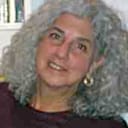Stay in the Loop
BSR publishes on a weekly schedule, with an email newsletter every Wednesday and Thursday morning. There’s no paywall, and subscribing is always free.
Nous sommes tous seuls
The Wilma Theater presents Wajdi Mouawad's 'Seuls'

Harwan is having a bad day. Actually it’s worse than bad; it’s terrible, and it’s more like a week. Harwan is a character — perhaps the alter ego of Wajdi Mouawad, the author, director and sole performer in Seuls, a remarkable traveling show continuing the Wilma Theater’s season. It is performed primarily in French with English surtitles and occasional dips into Arabic with no surtitles.
From one, many
The spare set (designed by Emmanuel Clolus), which will get much more complicated as the evening goes on, includes a cot, a chair, an old-fashioned dial phone that seems to have a mind of its own, and an unpainted wall. He’s just moved in after an unhappy breakup with his girlfriend. At 35, Harwan is still trying to finish his dissertation, a study of Robert Lapage, an avant-garde theater maker, but after 1500 pages it still lacks a conclusion. Harwan’s thesis advisor dies, he has a fight with his father on the phone, his sister nags him, he learns that Lapage’s new show is opening in St. Petersburg, and he decides to jump on a plane and go to Russia. Okay: So far, so realistic.
At the start, Mouawad, wearing only black briefs and glasses, lies down for a much-needed escapist nap, and his body casts a realistic shadow (much praise to Éric Champoux, lighting designer). But then, beyond the shadow, another Harwan rises and jumps out the window. This is the first of many eerie illusions created by Dominique Daviet’s video projections.
This alter ego will eventually expand, as the play’s language slides from “I” to “we” and the desperation and despair is “ours.” Maybe that’s why the title, which means “alone” in French, has an “s” at the end, which makes it plural. The show’s first question is “Qui sommes nous?” (“Who are we?")
A spectacular mess
Like his creator, Harwan is Lebanese Canadian. His father brought the family to America to escape the civil war, and traded sun and heat for Montreal’s snow. Harwan’s memories of his childhood, when he tried to count the stars from their back garden, are the loveliest portion of the script.
The narrative is a commonplace story with a few surprising turns, but all the events lead to a finale that looks like a suicidal tantrum and involves many, many minutes of throwing paint around, creating childish pictures, and making a spectacular mess. This is abstract expressionism carried to ludicrous extremes; Jackson Pollock on his drunkest day had more self-control.
But there are serious issues at stake here. The least pretentious and most compelling rests on one line: “Maybe that’s what exile is, the impossibility of making up for lost time.” It is one thing to live in exile from your native country, but to be exiled from your native language is another. Seuls suggests that this leads to an exile from self, and thus, perhaps, regression to a narcissistic stage. There is no denying that Mouawad is a gifted and courageous actor and a compelling presence on stage, although his degree of self-indulgence does seem extreme.
What, When, Where
Seuls. Written, directed, and performed by Wajdi Mouawad. Through December 11, 2016 at the Wilma Theater, 265 S. Broad Street, Philadelphia. (215) 546-7824 or wilmatheater.org.
Sign up for our newsletter
All of the week's new articles, all in one place. Sign up for the free weekly BSR newsletters, and don't miss a conversation.

 Toby Zinman
Toby Zinman